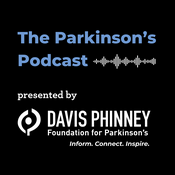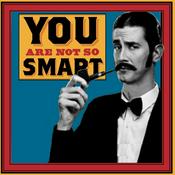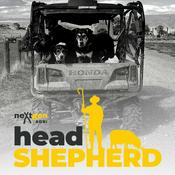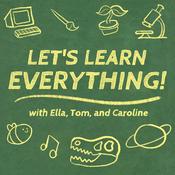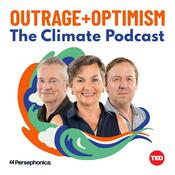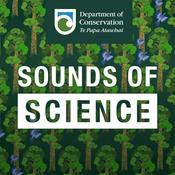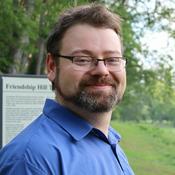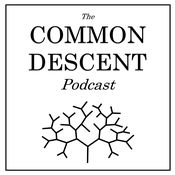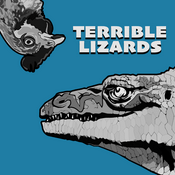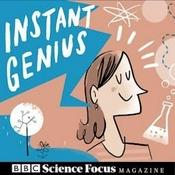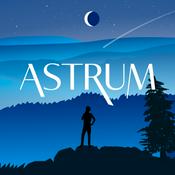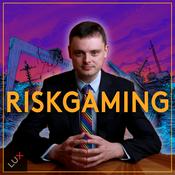64 episodes

Tinkered Thinking on White Mirror
14/11/2025 | 55 mins.
Tinkered Thinking is the pseudonym of the author behind White Mirror, a collection of stories that explore the implications of artificial intelligence and advances in computing—while offering a more optimistic lens than much of contemporary science fiction.In this episode, Samuel Arbesman speaks with Tinkered Thinking about the origins of these stories and his broader evolution as a writer, including his shift from a kind of Luddism toward a more forward-looking view of technological progress. Their conversation ranges across how we examine ideas about the future, societal blind spots around technology, the impact and importance of AI, concerns about AI doomers, and the kind of future he hopes we might create.

Alec Nevala-Lee on Luis Alvarez
05/11/2025 | 47 mins.
In this episode, Samuel Arbesman speaks again with Alec Nevala-Lee. Arbesman previously hosted Nevala-Lee to discuss his biography of Buckminster Fuller; this time, Nevala-Lee returns to talk about his new book, Collisions, a biography of Nobel Prize–winning physicist Luis Alvarez. Alvarez’s career ranged across particle physics, the Manhattan Project, the investigation of the JFK assassination, and—alongside his son—the asteroid-impact theory of dinosaur extinction.Arbesman and Nevala-Lee explore how Nevala-Lee first became interested in Alvarez; the physicist’s unique skills, brilliance, and difficult personality; the character of Berkeley and the Rad Lab in Alvarez’s era; the kinds and scale of science that most appealed to him; and his extensive work with the U.S. government. They also discuss Alvarez’s views on computers and the broader lessons from his life about choosing research problems and thriving as a successful outsider.

Nick Foster on "Could Should Might Don’t"
29/10/2025 | 55 mins.
In this episode, Samuel Arbesman speaks with Nick Foster, a designer and futurist who has worked with numerous major companies imagining a variety of futures—from Nokia and Dyson to Google. Foster is also the author of the new book Could Should Might Don’t, which explores the many ways we do and can think about the future.Arbesman and Foster discuss how Foster found his way into the world of futures thinking and the nature of futures design work within organizations. Their conversation covers Foster’s taxonomy of different kinds of futures design, the importance of cultivating better future-thinking practices, common mistakes in forecasting, and the limits of prediction itself. They also delve into his perspective on science fiction and his distinctive approach to futures work—what he calls the “future mundane,” a vision of the future as a lived-in, everyday world.

David Edmonds on Death in a Shallow Pond
22/10/2025 | 49 mins.
In this episode, Samuel Arbesman speaks with David Edmonds, cohost of the Philosophy Bites podcast and bestselling author of numerous books on philosophy, including his most recent work, Death in a Shallow Pond: A Philosopher, A Drowning Child, and Strangers in Need. In this delightful book, Edmonds explores Peter Singer’s famous “shallow pond” thought experiment—its moral implications, its influence, and how it gave rise to the Effective Altruism movement. The result is a fascinating biography of an idea and a penetrating analysis of its ripple effects through ethics and action.Arbesman and Edmonds delve into the origins and nature of the Shallow Pond experiment, tracing its journey from moral philosophy to practical impact through Effective Altruism. They discuss the demandingness of Singer’s argument, the most compelling counterpoints, the EA movement’s evolution toward longtermism and focus on AI and existential risk, why EA provokes criticism, and the broader question of how thought experiments shape the real world.

Rohit Krishnan on Training AI to Write Better
15/10/2025 | 53 mins.
n this episode, Samuel Arbesman speaks with Rohit Krishnan, one of the most playful and insightful thinkers in the world of ideas. Rohit writes Strange Loop Canon, a newsletter devoted to exploring delightfully wide-ranging concepts—including artificial intelligence. He also recently collaborated with Jon Evans on Walter, a project that trained an AI to be good at social media.Together, Samuel and Rohit discuss Walter and the curious question of why large language models remain so poor at good writing, despite being built around text. Their conversation branches into topics such as reinforcement learning for writing, useful metaphors for understanding LLMs—like “fuzzy processors”—and whether emphasizing the alienness of AIs is a fruitful endeavor. They also touch on the idea of nurturing AI, how to use these systems in one’s work and life, and what all this means for the future of labor—perhaps a future that feels more like a video game. Above all, they explore the importance of continuing to play with these strange new tools.
More Science podcasts
Trending Science podcasts
About The Orthogonal Bet
Listen to The Orthogonal Bet, The Rest Is Science and many other podcasts from around the world with the radio.net app
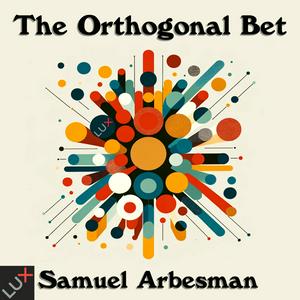
Get the free radio.net app
- Stations and podcasts to bookmark
- Stream via Wi-Fi or Bluetooth
- Supports Carplay & Android Auto
- Many other app features
Get the free radio.net app
- Stations and podcasts to bookmark
- Stream via Wi-Fi or Bluetooth
- Supports Carplay & Android Auto
- Many other app features


The Orthogonal Bet
download the app,
start listening.











